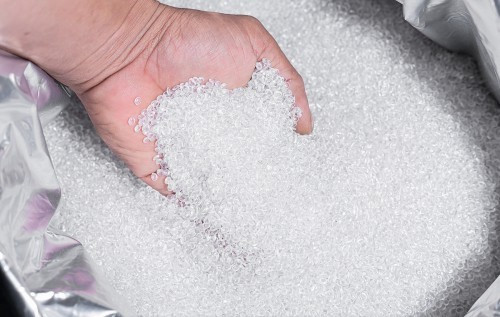The possible alternative to mechanical recycling is ecologically and economically disadvantageous. Therefore, it does not count towards the statutory recycling quota.
As things currently stand, mechanical recycling is fundamentally better than chemical recycling, both ecologically and economically. This is the conclusion of a recent study by the Federal Environment Agency (UBA). In a recently published "Background paper on chemical recycling", the federal authority criticizes the high energy input required to chemically break down used plastics into their components and produce new plastics from them. The UBA experts are also bothered by the fact that chemical recycling produces large quantities of non-recyclable residues and pollutants. Furthermore, the productivity of chemical recycling is poor, according to the experts. Their conclusion: chemical recycling is ecologically and economically no alternative to mechanical recycling, is not technically mature and should therefore not be counted towards the mechanical recycling quota for plastics.
Plastics can be reintegrated into the material cycle in various ways. To date, they have mainly been recycled mechanically. Chemical recycling is now being discussed as a possible supplement to mechanical recycling. In its background paper, the UBA explains that this technology is said to have the potential to strengthen material recycling by tapping into new waste that could not previously be recycled mechanically, thereby making it easier to achieve the statutory quotas for plastics recycling. However, according to the federal authority's experts, chemical recycling seems to create more problems than it solves.
Immature and highly risky
 The UBA also agrees with the German Environmental Aid (DUH) in this assessment: the organization warns against chemical recycling as an "immature and high-risk technology whose environmental impact is barely known". "Chemical recycling could therefore become a dead end and hinder important developments for an environmentally friendly circular economy," fears the DUH.
The UBA also agrees with the German Environmental Aid (DUH) in this assessment: the organization warns against chemical recycling as an "immature and high-risk technology whose environmental impact is barely known". "Chemical recycling could therefore become a dead end and hinder important developments for an environmentally friendly circular economy," fears the DUH.
In mechanical recycling, plastic waste is sorted, washed, melted down and processed into recyclate. This recyclate is then used as a raw material for new products. Chemical recycling is another form of material recycling and involves converting plastic polymers into their basic chemical building blocks using thermochemical or chemical processes, as the UBA explains. The products resulting from chemical recycling are suitable as input materials for the chemical industry for the manufacture of new plastic products, but also for use as liquid energy sources or fuels.
The possibility of producing basic materials for the chemical industry makes the newly emerging processes of chemical recycling potentially very important, as they could contribute to closing the loop between the supply and disposal industries, writes the UBA. However, the environmental authority's experts deny the technical suitability of this technology as well as its ecological and economic advantages. In its background paper, the UBA states that the actual suitability of the individual processes for plastics recycling has yet to be implemented on an industrial scale, even if the processes have already been tested for other input materials.
High energy input, non-recyclable pollutants
The federal authority's criticism is sparked in particular by the very high energy input required for chemical recycling. The UBA also criticizes the large quantities of non-recyclable residues and pollutants produced during chemical recycling. Their disposal and processing are energy-intensive and not technically mature, according to the agency. In addition, the UBA is bothered by the low yield of chemical recycling: such a high loss of material seems "questionable from an ecological point of view" to the experts.
Deutsche Umwelthilfe even questions whether the term "recycling" is even appropriate for chemical recycling. The organization argues that once the plastic has been broken down into the actual raw material for plastic production, the plastic then has to be produced from scratch. In contrast, classic "mechanical recycling" does not chemically alter the plastic.
Neither an alternative nor a supplement
The authors of the UBA background paper therefore come to the following conclusion: "A detour of material flows that have so far been used in mechanical recycling to chemical recycling should be avoided, as it can currently be assumed that the technically far less complex mechanical recycling processes are ecologically more advantageous." The Federal Environment Agency also notes skeptically that the operation of a large-scale plant is associated with high investment and operating costs and is therefore only economical with a continuously high throughput. This means that only plastic waste that is "available on the market in large quantities and does not compete directly with mechanical recycling" can be considered as a feedstock for chemical recycling, the paper continues. And the authors of the analysis do not see these quantities of waste ...
All in all, the study clearly shows that chemical recycling has so far been neither an alternative nor a supplement to mechanical recycling. The ecological and economic disadvantages and technical deficits are simply still far too great for this, as the UBA states.
Links:
https://www.umweltbundesamt.de/publikationen/chemisches-recycling
https://www.duh.de/projekte/chemisches-recycling/
https:// www.recyclingnews.de/recycling/uba-sieht-chemisches-recycling-skeptisch/



